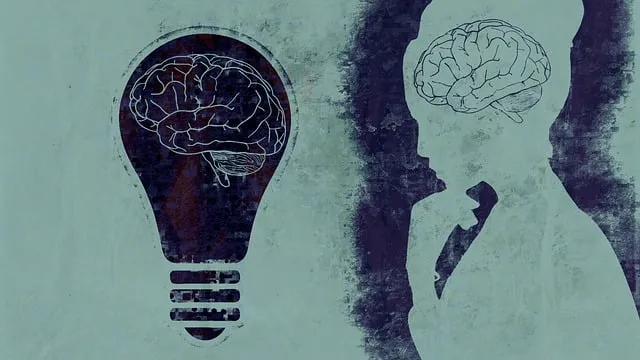Emotional intelligence (EQ) is a vital component of mental wellness, and Kaiser Permanente behavioral health services Boulder prioritizes its development in healthcare providers through comprehensive programs. These initiatives focus on self-awareness, empathy, and communication skills, aiming to prevent burnout, promote community mental well-being, and enhance patient outcomes with compassionate care. By employing strategies like active listening, self-care practices, open communication, and measuring progress, Kaiser Permanente fosters a supportive environment that benefits both healthcare professionals and their patients, revolutionizing healthcare experiences in Boulder.
Emotional intelligence (EQ) is a vital component of mental well-being, impacting every aspect of our lives. This article explores the significance of EQ, focusing on its role in personal and professional success. We delve into how organizations like Kaiser Permanente Behavioral Health Services Boulder are revolutionizing mental health support, promoting EQ development through innovative programs and services. Additionally, we provide practical strategies for enhancing EQ in everyday life, along with tools to measure and track progress.
- Understanding Emotional Intelligence: A Key Component of Mental Well-being
- The Role of Kaiser Permanente Behavioral Health Services Boulder in Promoting EQ Development
- Strategies for Enhancing Emotional Intelligence in Everyday Life
- Measuring and Tracking Progress: Tools and Techniques for Continuous Growth
Understanding Emotional Intelligence: A Key Component of Mental Well-being

Emotional intelligence (EQ) is a fundamental aspect of mental well-being, encompassing self-awareness, emotional regulation, empathy, and social skills. It’s about understanding and managing your own emotions while connecting with and empathizing with others. For individuals seeking to improve their overall health and happiness, especially those engaging with Kaiser Permanente behavioral health services Boulder, developing EQ can be a game-changer. A healthcare provider with strong emotional intelligence is better equipped to handle challenging patient interactions, provide culturally competent care, and offer support that boosts client confidence and stress management, often achieved through workshops and training programs offered by organizations focusing on these areas.
The Role of Kaiser Permanente Behavioral Health Services Boulder in Promoting EQ Development

Kaiser Permanente Behavioral Health Services Boulder plays a pivotal role in promoting emotional intelligence (EQ) development among healthcare providers. Through its comprehensive programs and services, the organization aims to foster an environment that encourages self-awareness, empathy, and effective communication skills – all essential elements of EQ. The focus on burnout prevention strategies for healthcare providers is a key aspect of their approach, recognizing the immense pressure and stress these professionals often face. By implementing community outreach program initiatives, Kaiser Permanente connects with diverse communities, offering resources and support to enhance mental well-being and build resilience.
Moreover, the organization prioritizes inner strength development, empowering staff to manage stress, maintain balance, and deliver compassionate care. These efforts not only contribute to the personal growth of healthcare providers but also significantly impact patient outcomes by enhancing the overall quality of care and creating a more supportive and empathetic healthcare environment.
Strategies for Enhancing Emotional Intelligence in Everyday Life

Building emotional intelligence (EI) is an ongoing process that can significantly enhance our interactions and overall well-being. The good news is, there are practical strategies to cultivate EI in our daily routines. One effective approach is to practice active listening during conversations. By giving your full attention to the speaker, maintaining eye contact, and paraphrasing their feelings, you demonstrate empathy and foster a deeper connection. This skill is invaluable for fostering strong relationships and resolving conflicts peacefully, as demonstrated by Kaiser Permanente behavioral health services Boulder.
Additionally, integrating self-care practices into your routine plays a pivotal role in EI development. Engaging in regular exercise, sufficient sleep, and mindful activities like meditation or journaling allows you to better understand and manage your emotions. These practices also contribute to Stress Reduction Efforts, which is crucial for maintaining mental health and reducing the impact of potential Mental Illness Stigma. Effective communication strategies, such as expressing thoughts and feelings openly yet respectfully, further strengthen emotional intelligence, creating a more positive and supportive environment in both personal and professional spheres.
Measuring and Tracking Progress: Tools and Techniques for Continuous Growth

Measuring progress is a vital component of emotional intelligence development. At Kaiser Permanente behavioral health services Boulder, professionals utilize various tools to track client growth and enhance their emotional well-being. One such tool involves setting specific, measurable goals aligned with self-awareness and regulation, enabling individuals to monitor their progress over time. Regular check-ins and reflection sessions facilitate this process, where clients can identify improvements in managing stress, regulating emotions, and fostering healthy relationships.
Additionally, integrating practices like Mood Management and Self-Care Routine Development for Better Mental Health plays a significant role in assessing progress. Mindfulness Meditation techniques are often recommended as a way to track emotional growth. By regularly practicing mindfulness, individuals can better recognize their emotional states, fostering a deeper understanding of their triggers and responses. This self-reflection allows for informed decision-making and the implementation of effective coping strategies, ultimately contributing to continuous emotional intelligence development.
Emotional intelligence (EQ) is a powerful tool for enhancing mental well-being, and with the support of organizations like Kaiser Permanente Behavioral Health Services Boulder, individuals can embark on a journey of self-discovery and growth. By understanding EQ, leveraging evidence-based strategies, and utilizing tracking techniques, one can navigate life’s challenges more effectively. The comprehensive approach outlined in this article equips readers with the knowledge and tools to foster their emotional intelligence, ultimately leading to improved relationships, decision-making, and overall well-being—a true game-changer in today’s fast-paced world.






